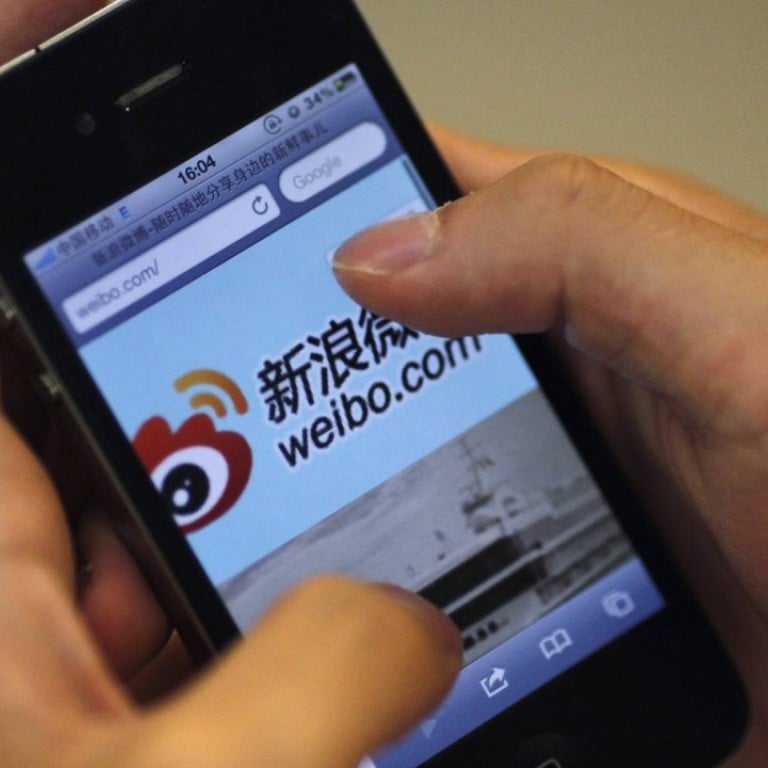
China’s Twitter-like Weibo orders users to register their real names
Deadline comes as government seeks to tighten its grip on online speech ahead of next month’s Communist Party congress
China’s Twitter-like microblogging site Weibo has issued an ultimatum to its users demanding they verify their accounts with their real names before next Friday, as Beijing further tightens its control of online speech in the lead-up to a key leadership reshuffle.
Sina Weibo said in an official notice on Friday that users would be asked to verify their accounts before posting on the platform. It gave a deadline of September 15, but did not say what would happen to those who failed to comply.
The ultimatum came after China’s cyberspace regulator issued a new rule last month that effectively bans anonymous online commenting from next month. On October 18, the ruling Communist Party will open its twice-a-decade congress, revealing its new leadership line-up for the next five years.
The government has been steadily tightening its grip on the internet since the start of the year. As well as being more vigorous in its implementation of existing regulations, it has introduced a sweeping cybersecurity law, and launched a campaign to outlaw unlicensed virtual private networks that allow people to access censored websites.
China’s internet regulators have been pushing for real-name registration for online discussion platforms for years, but enforcement has been lax and there are still unverified users active online.
Weibo users were first asked to register their real names in 2011, when the Beijing municipal government issued a regulation as part of a push to rein in online rumour-mongering and “cleanse” content. But a year later, Sina admitted publicly that it had failed to fully implement the regulation because it was time consuming and eroded its user base.
In 2015, the Cyberspace Administration vowed to ramp up the policy to cover other internet services – including instant messaging programs, microblogs, online forums and other communication websites – and pledged to strengthen oversight, but neither was strictly enforced.
In Friday’s announcement, Weibo stressed that all users, including those who registered before 2011, would be targeted in the latest push for real-name verification.
It said that since 2011 it had required all new users to register with their real names and had been “guiding” old users to do the same. People were asked to provide their mobile phone numbers as in mainland China these too had to be registered to a “real” person, it said.
The statement said Weibo had so far completed real-name registration for all “active users”, without elaborating. The service boasted 340 million active monthly users in the first quarter of this year, accounting for 40 per cent of the country’s population and surpassing Twitter, which is blocked in China, which had about 328 million active monthly users.
The company did not immediately respond to the South China Morning Post’s requests for comment on Friday.
The cybersecurity law enacted in June places internet companies under greater pressure to monitor users and their activities.
In anticipation of the law coming into force, some companies, such as the Quora-like question-and-answer website Zhihu and search engine Baidu, had already asked users to verify their identities.
In August, internet giants Tencent, Baidu and Sina Weibo were placed under investigation by regulators for allowing users to spread content that “harms national security, public safety and social order”.
On Thursday, the Cyberspace Administration issued new rules to rein in instant messaging chat groups, demanding service providers verify the identities of their users and keep a log of group chats for no less than six months.

